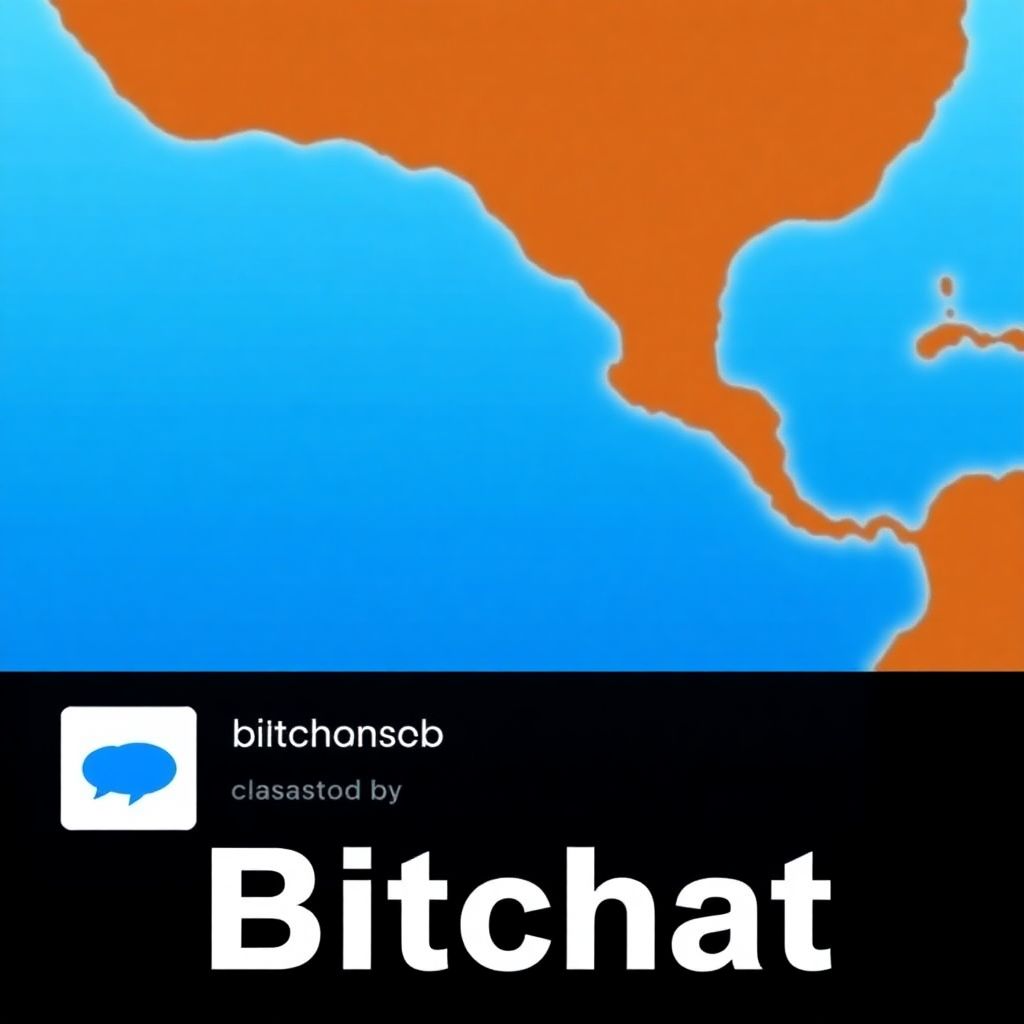Bitchat Climbs to #2 in Jamaica as Hurricane Melissa Disrupts Internet Access
As Hurricane Melissa lashes the Caribbean with devastating force, Jamaicans are increasingly turning to alternative communication platforms to stay connected. In the wake of widespread internet outages caused by the Category 5 storm, the decentralized messaging app Bitchat has skyrocketed to the second position in app store rankings across Jamaica, trailing only behind the weather-tracking platform Zoom Earth.
The hurricane, with winds reaching up to 185 miles per hour, has ravaged infrastructure and left vast areas without power or stable internet connectivity. For Jamaica’s population of 2.8 million, conventional digital communication channels have become unreliable or entirely inaccessible. In this crisis, Bitchat has emerged as a vital tool, enabling encrypted, peer-to-peer communication without the need for internet or cellular networks.
Bitchat operates using a Bluetooth mesh network, allowing users to send messages directly to nearby devices, creating a chain of communication that can span large distances even in the absence of traditional service providers. This decentralized architecture has made the app a lifeline for residents trying to contact loved ones or share critical information during the ongoing disaster.
The surge in downloads reflects the app’s growing role not just in countries experiencing political censorship or surveillance, but also in areas hit by natural disasters. Prior to this, Bitchat saw a significant uptick in user adoption in regions like Nepal and Indonesia, where government-imposed social media bans and civil unrest disrupted normal communication channels. In Madagascar, widespread outages in water and electricity supply also led to a spike in interest in decentralized apps like Bitchat.
In Jamaica, the app’s popularity underscores two urgent needs during the storm: access to real-time weather updates and the ability to communicate securely. While Zoom Earth provides critical meteorological data, Bitchat fills the gap left by failing internet infrastructure, offering Jamaicans a way to stay in touch when it matters most.
The humanitarian crisis caused by Hurricane Melissa continues to deepen. According to reports, at least 30 lives have been lost across the Caribbean, with Haiti bearing the brunt of the fatalities. Countless homes and businesses have been destroyed, and recovery efforts are being hampered by the lack of communication tools.
Bitchat’s rise also comes amid global debates over digital privacy and the future of encrypted messaging. In Europe, discussions surrounding the proposed “Chat Control” legislation have stirred controversy. If passed, the law would mandate that all encrypted messaging apps scan private messages for illegal content before encryption occurs — a move critics argue would effectively eliminate end-to-end encryption.
Germany has openly opposed the proposal, citing constitutional concerns and the potential for mass surveillance. As a result, the vote on the legislation has been postponed, with a new round of discussions expected in the coming months. The outcome could have far-reaching implications for communication technologies worldwide, including apps like Bitchat, Signal, and Telegram.
Despite these regulatory headwinds, the demand for decentralized, secure communication tools continues to grow. Natural disasters, government censorship, and concerns over digital privacy are all contributing to the adoption of apps that operate outside of centralized control.
Bitchat’s success in Jamaica highlights a broader shift in how people think about connectivity and resilience. In areas where traditional systems fail — whether due to hurricanes, political instability, or infrastructure collapse — decentralized technologies offer a reliable alternative.
Moreover, the situation raises questions about preparedness in the face of extreme weather events. As climate change increases the frequency and severity of hurricanes and other natural disasters, the need for robust, off-grid communication solutions becomes more urgent. Governments and emergency services may need to consider integrating such technologies into their disaster response strategies.
There is also a growing movement among tech developers to design apps that can function without reliance on the internet. From mesh networks to satellite-based communication, the next generation of digital tools may increasingly prioritize resilience and autonomy — qualities that are becoming essential in today’s volatile world.
The case of Bitchat in Jamaica serves as a stark reminder that digital infrastructure is not infallible. In times of crisis, the ability to communicate can mean the difference between safety and danger, and decentralized tools are proving to be indispensable.
As the Caribbean continues to grapple with the aftermath of Hurricane Melissa, the spotlight is now firmly on how technology can aid in disaster resilience. The surge in Bitchat downloads is not just a reflection of current necessity — it’s a glimpse into the future of global communication.

